
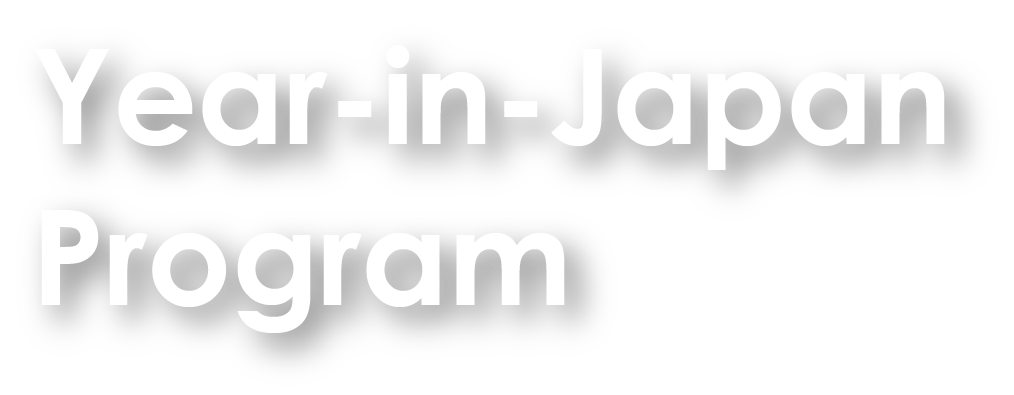



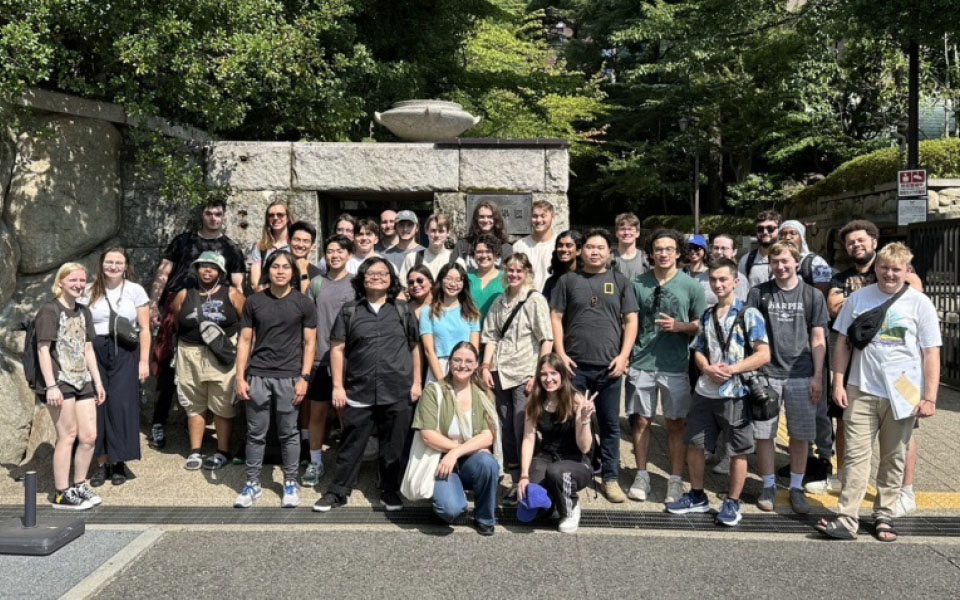
The academic year for Year-in-Japan Program (YiJ) students consists of two semesters: the first term runs from September to December, and the second term runs from January to May. Students may apply for the full academic year or for either the fall or spring semester. The YiJ Program is composed of intensive Japanese language classes in the morning and Japan Studies, a set of elective courses taught in English which cover a variety of social and cultural themes, in the afternoon. The typical course load consists of Japanese language every weekday morning plus two Japan Studies courses per semester. An official transcript of the grades earned is forwarded to each student’s home university at the end of each semester. Students should inquire with the appropriate office at their home university about transferring credits earned at Konan University.
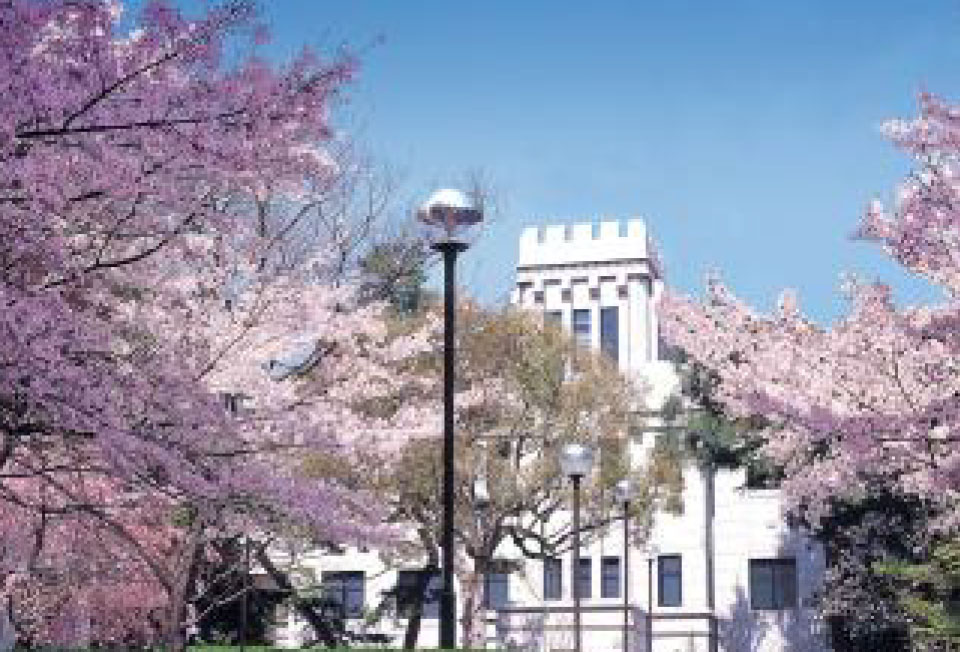
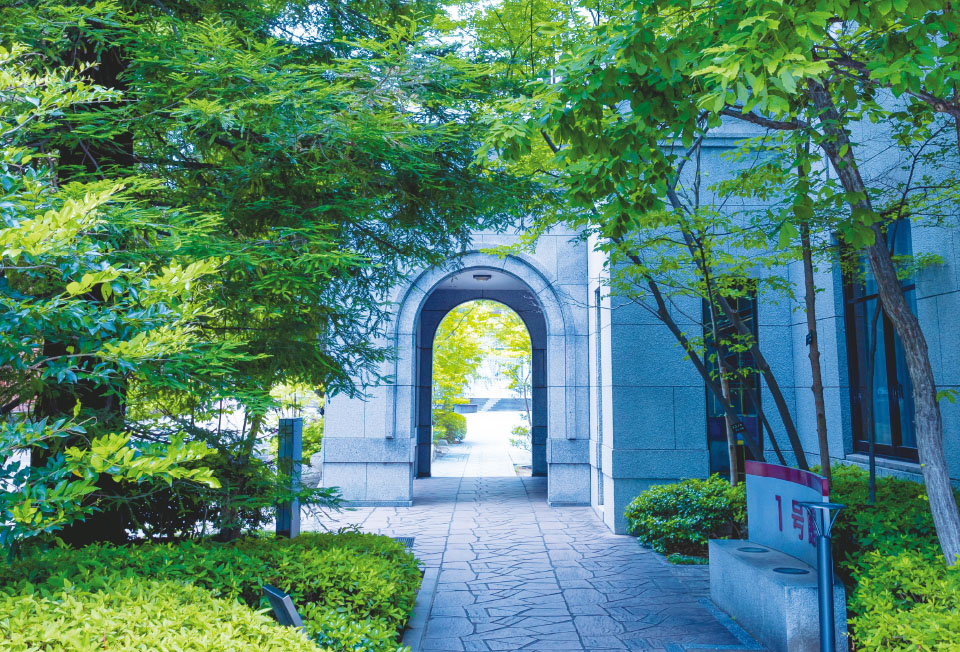
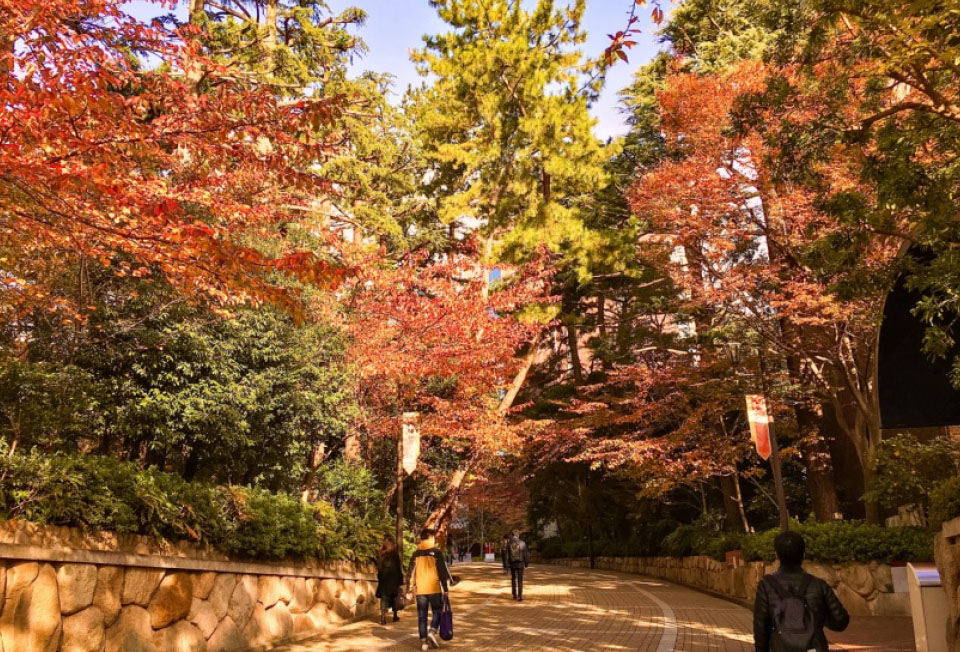

| FALL SEMESTER | SPRING SEMESTER | |
|---|---|---|
| ARRIVAL/ORIENTATION | Beginning of September | Beginning of January |
| CLASSES | Early September-Late December | Early January-Mid May |
| STUDY TOUR | November | March |
| END OF SEMESTER | December | May |
The academic year for Year-in-Japan Program (YiJ) students consists of two semesters: the first term runs from September to December, and the second term runs from January to May. Students may apply for the full academic year or for either the fall or spring semester. The YiJ Program is composed of intensive Japanese language classes in the morning and Japan Studies, a set of elective courses taught in English which cover a variety of social and cultural themes, in the afternoon. The typical course load consists of Japanese language every weekday morning plus two Japan Studies courses per semester. An official transcript of the grades earned is forwarded to each student’s home university at the end of each semester. Students should inquire with the appropriate office at their home university about transferring credits earned at Konan University.

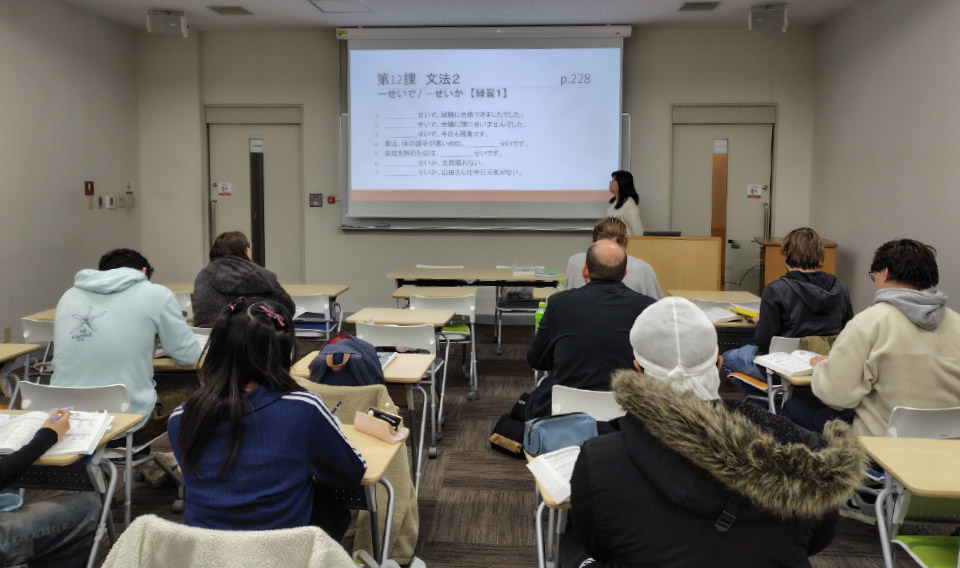
Study Japanese in a program that develops your language proficiency through intensive study and daily use.


The size of each class is limited to roughly 10 students at most in order to maximize individualized instruction. Students attend three morning classes in Japanese language, Monday through Thursday (9:00-9:50 / 10:00-10:50 / 11:00-11:50), and two morning classes on Fridays (9:00-9:50 / 10:00-10:50) for fall semester. The spring semester is essentially the same, except that Wednesdays in spring follow the Friday (9:00-9:50 / 10:00-10:50) schedule.
The Japanese curriculum provides 5 levels of courses* suitable for students from beginning to advanced ability. Students are assigned to these levels on the basis of the results of 2 types of placement tests: one administered before and the other soon after arrival in Japan. Placement decisions also take previous experiences with the language into consideration.
*Attention: Please see the “Program Criteria” for the Japanese language proficiency application requirements for the fall and spring semesters.
At the beginning and pre-intermediate levels, oral performance and the typical interactions that students have in their daily lives in Japan are emphasized. As students progress to intermediate and advanced levels, reading and writing receive increasingly more attention. At the advanced levels, academic discourse is also covered, as students learn to read and write essays and other academic texts.
| Subject | Level | Language Proficiency Goal |
|---|---|---|
| JAPANESE Ⅰ | Beginner* | JLPT N5 Level |
| JAPANESE Ⅱ | Pre-Intermediate | JLPT** N4 Level |
| JAPANESE Ⅲ | Intermeciate | JLPT** N3 Level |
| JAPANESE Ⅳ | Pre-Advanced | JLPT** N3~N2 Level |
| JAPANESE Ⅴ | Advanced | JLPT** N2~N1 Level |
*Please see the “Program Criteria” for the Japanese language proficiency application requirements for the fall and spring semesters.
**Japanese Language Proficiency Test
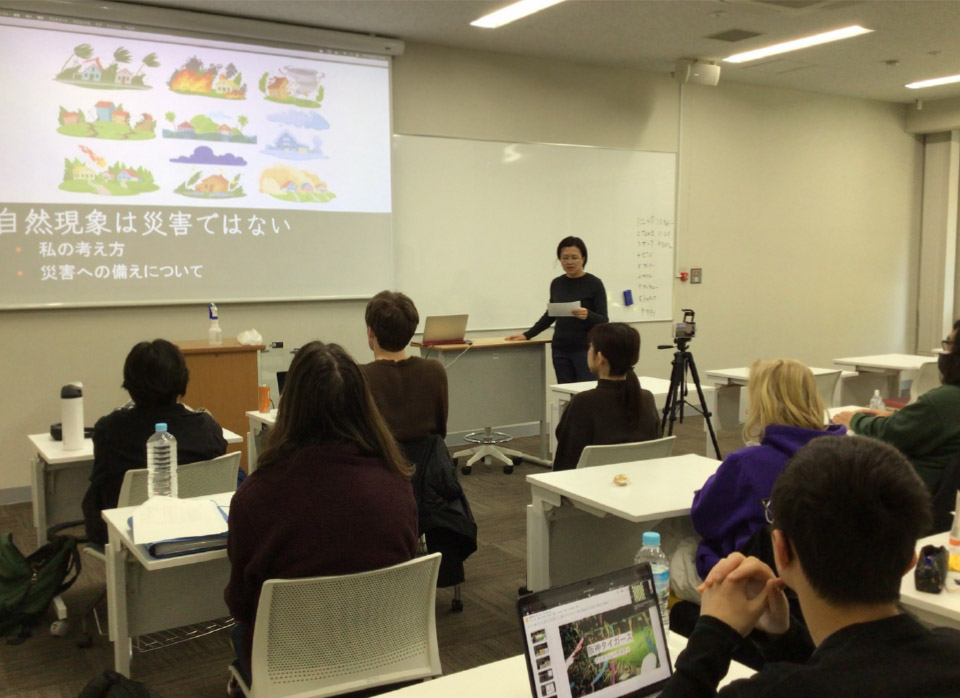
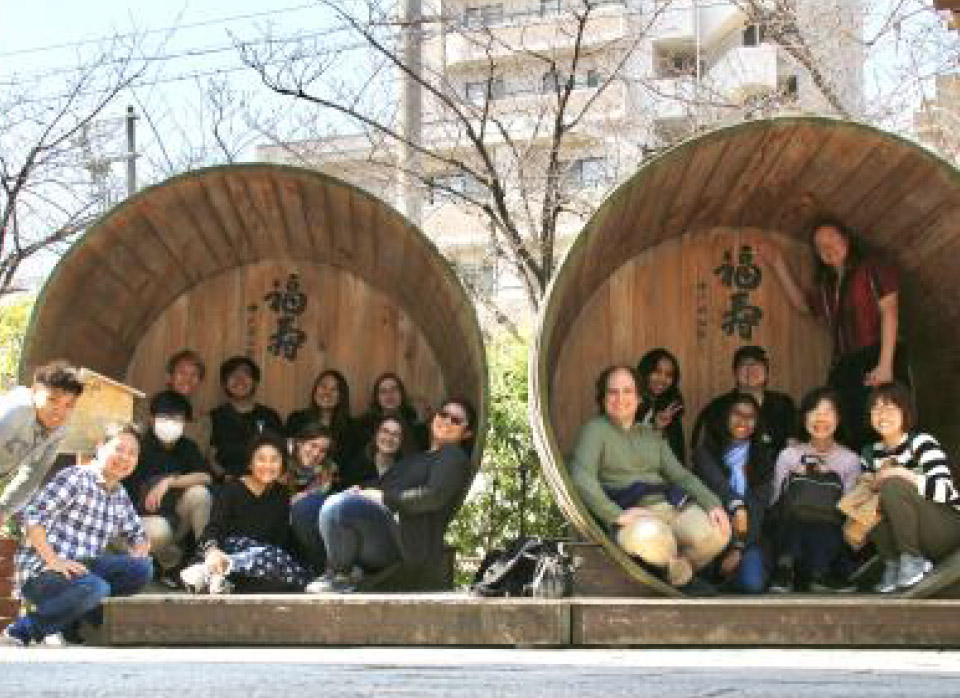
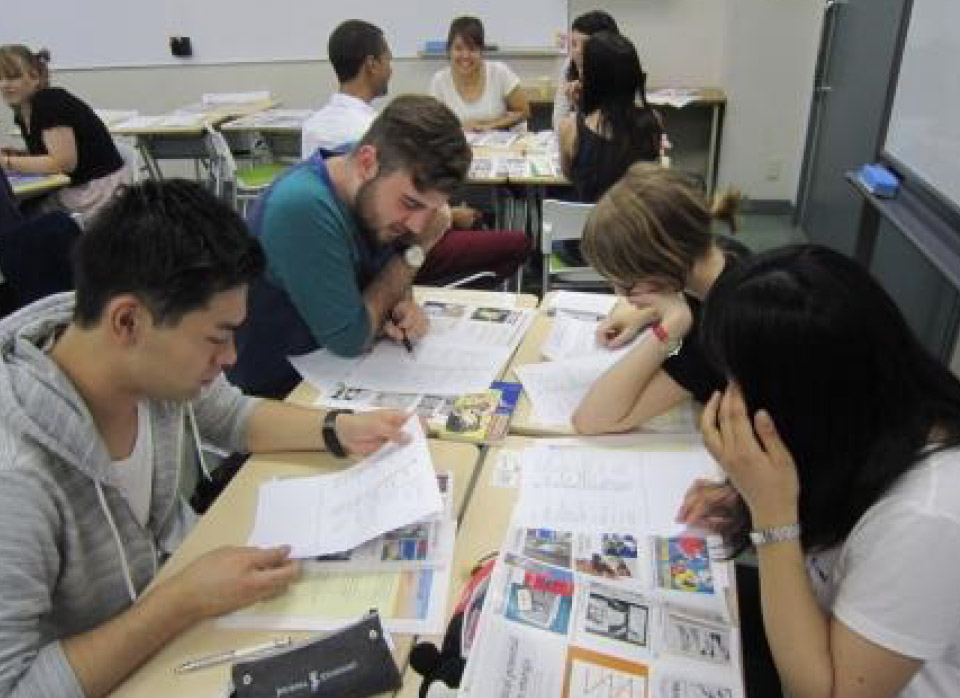
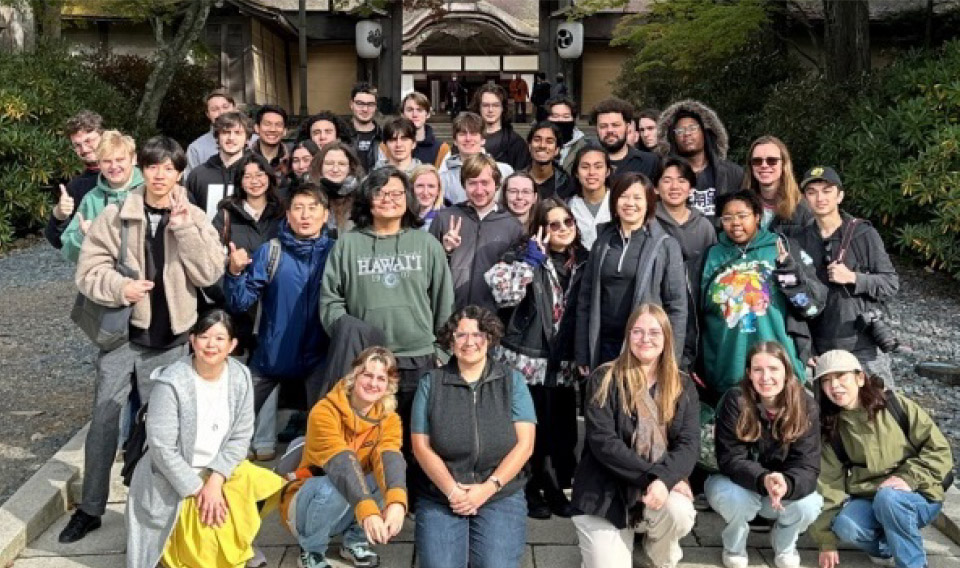
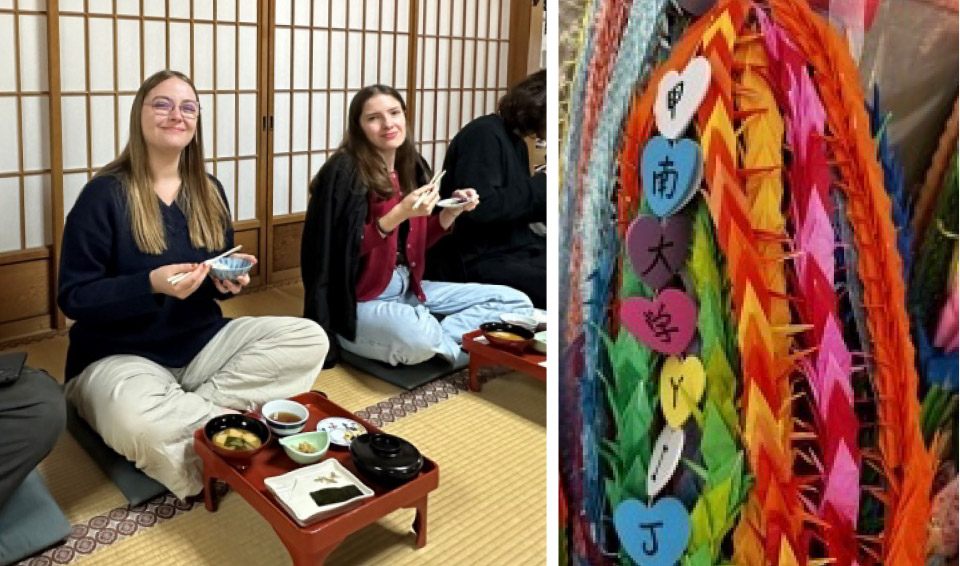
Among the highlights of the Japanese language course are overnight study tours. Two or three supervised study tours to destinations that typically include Koya-san in Wakayama Prefecture, Hiroshima and the nearby island of Miyajima, and other neighboring areas are included throughout the program year as part of the Japanese curriculum.
Each study tour provides students with opportunities to explore western Japan’s unique heritage. The itineraries are carefully planned to offer students a culturally rich and diversified experience of contemporary Japan, while also incorporating traditional activities that are unique to the particular regions visited. Through interacting with local community members in each region, students apply what they have been practicing in their Japanese language classes as they learn about Japan in greater depth.
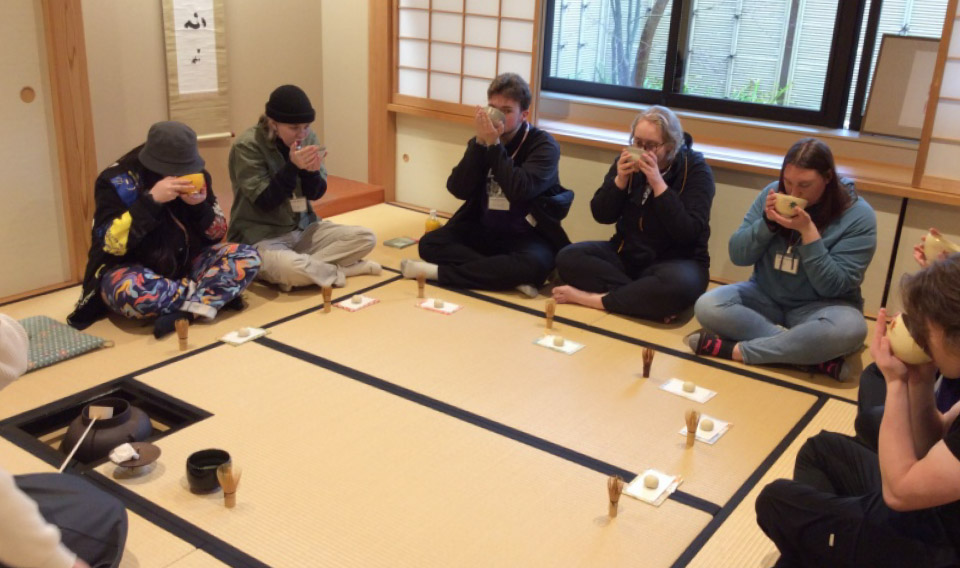
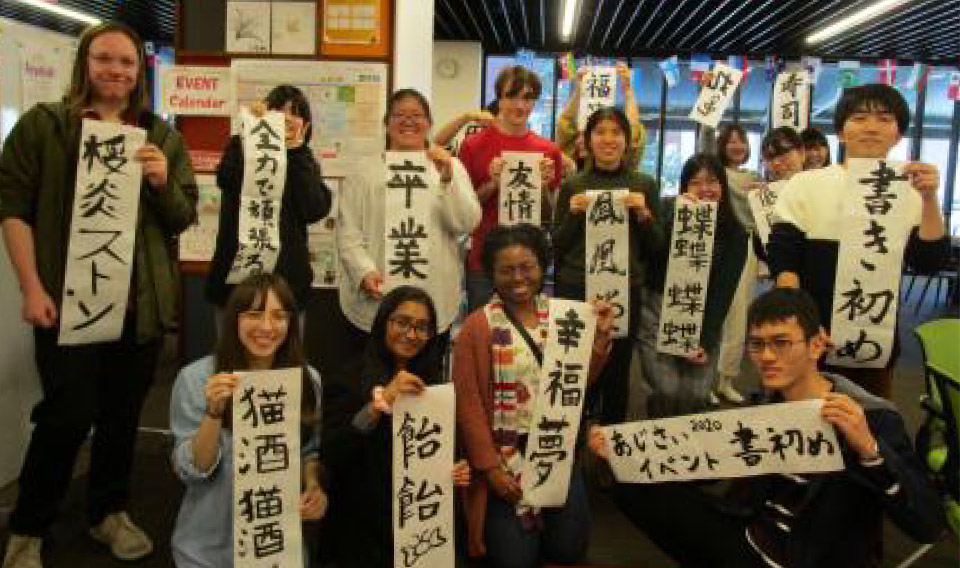
Many students choose to live with Japanese host families in order to fully immerse themselves into the daily lifestyles and routines of Japan. In the span of the program, these students will typically shop at local markets, enjoy home cooking, attend local festivals, and experience seasonal events such as the New Year’s holiday and cherry blossom viewing.
Using Japanese as a tool to communicate in these everyday situations along with becoming actively involved in the community, taking trips during days off, and working part-time jobs all combine to help students experience Japanese society and culture from a variety of viewpoints. Students are asked to interview their host families and close acquaintances as a means to facilitate meaningful conversation that is essential as students navigate their way to mastering the Japanese language.
Activities that introduce traditional Japanese culture are held seasonally at the Ajisai Room in Global Zone Porte and are open to both YiJ students and Konan students. These events are an opportunity for cultural exchange and for forming new friendships.
Konan students who volunteer as Japanese language partners also periodically help YiJ students improve language skills by participating as conversation or discussion partners in Japanese language classes(Manatomo program). Participants practice target skills through lively interactions with Konan students in a classroom setting.
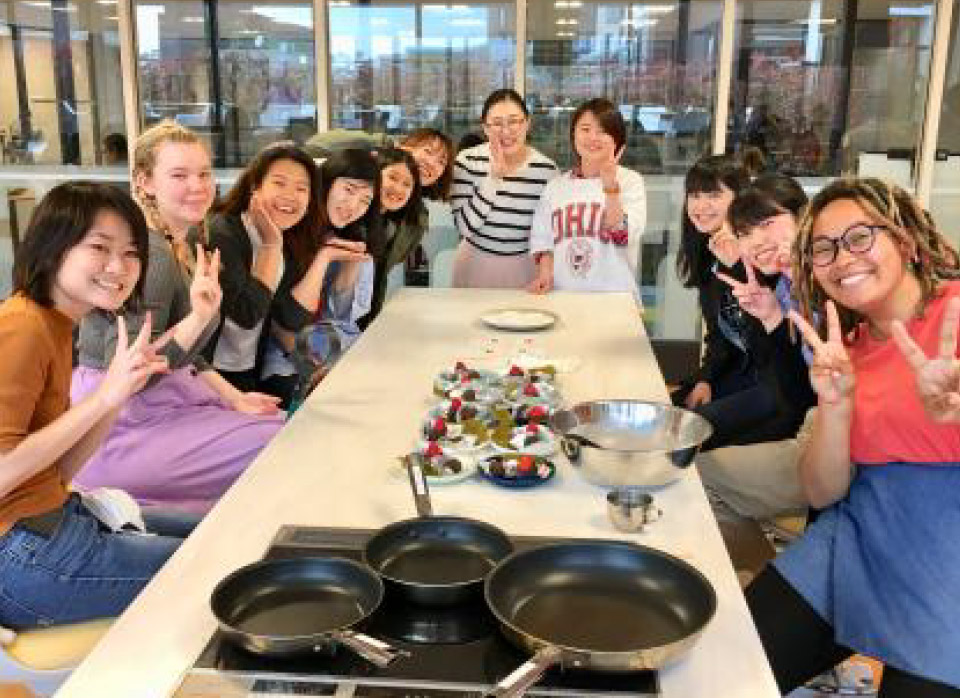
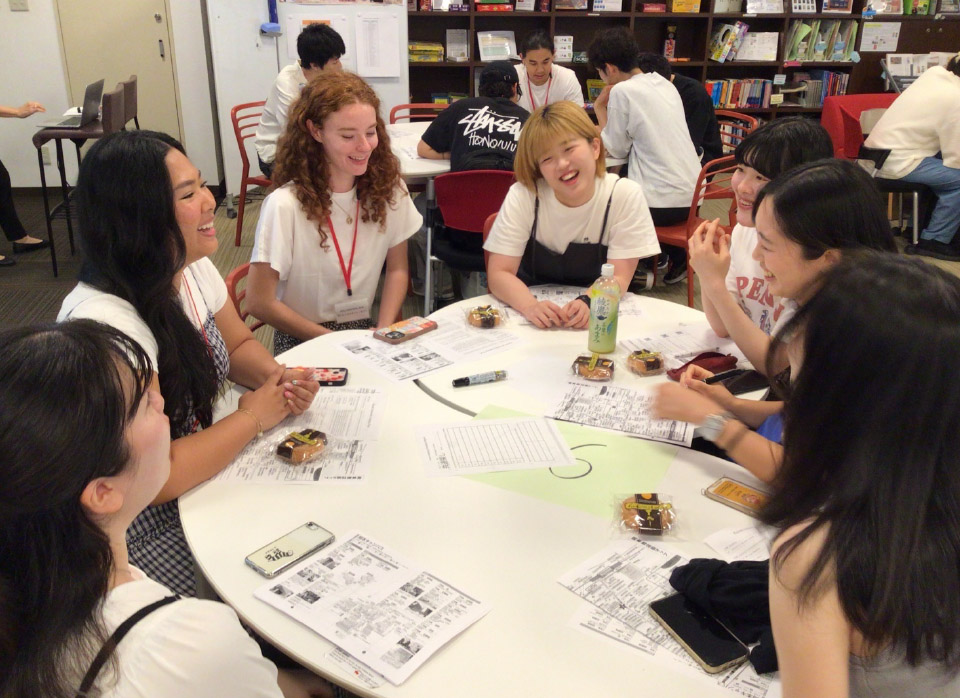
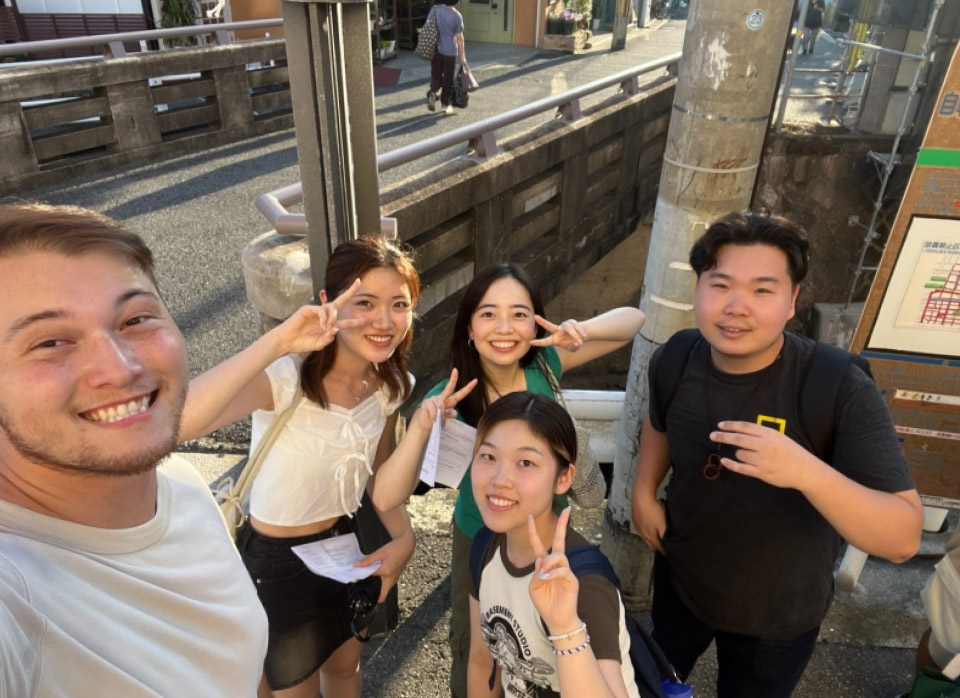
Japan Studies are elective courses taught in English that focus on subjects related to Japan. Courses include occasional field trips that enhance classroom instruction and deepen the understanding of the course subject. The content of these courses varies somewhat from year to year, depending upon the interests of students, the availability of English-speaking faculty members, and the research specialty of the Resident Director of the YiJ Program.
Students also have the option of taking a course along with Konan students called Joint Seminar, in addition to two Japan Studies courses. This course meets less frequently than other Japan Studies courses and offers opportunities for YiJ students and Konan students to get to know each other and share their views about global topics in a classroom setting.
Students with sufficient Japanese language ability and proper faculty approval are eligible to take regular departmental university courses with Konan students (fall semester only). Interested students should consult with KIEC to determine whether or not such classes can be taken for credit.
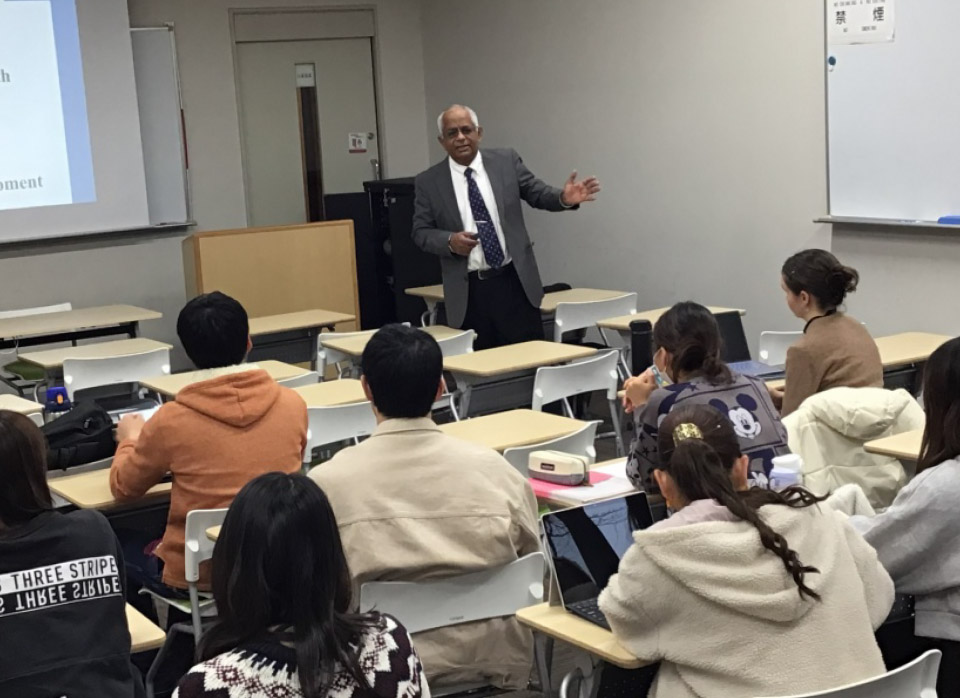
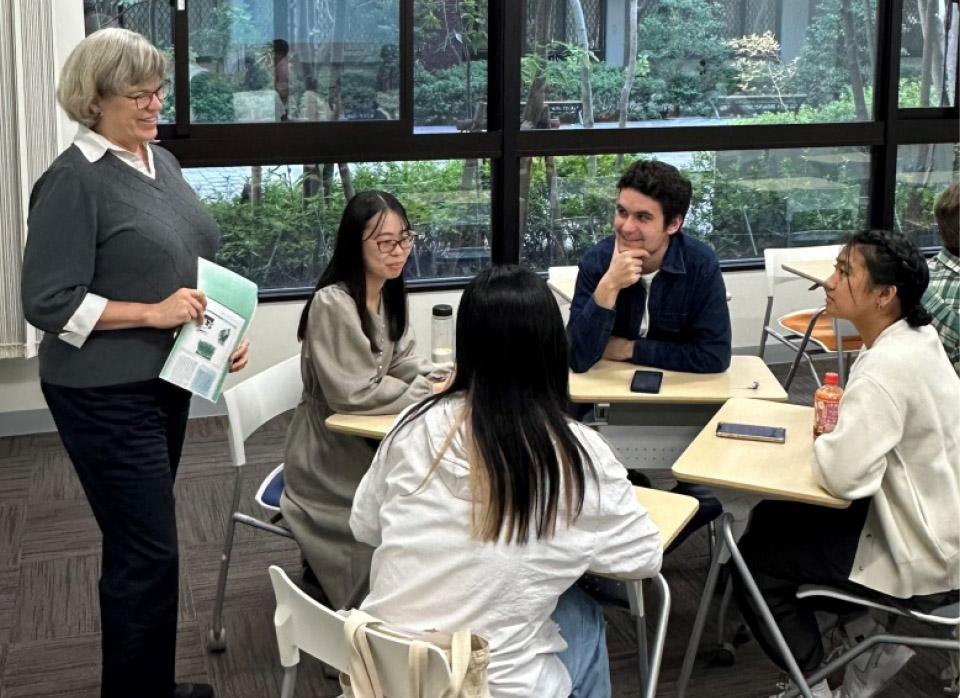
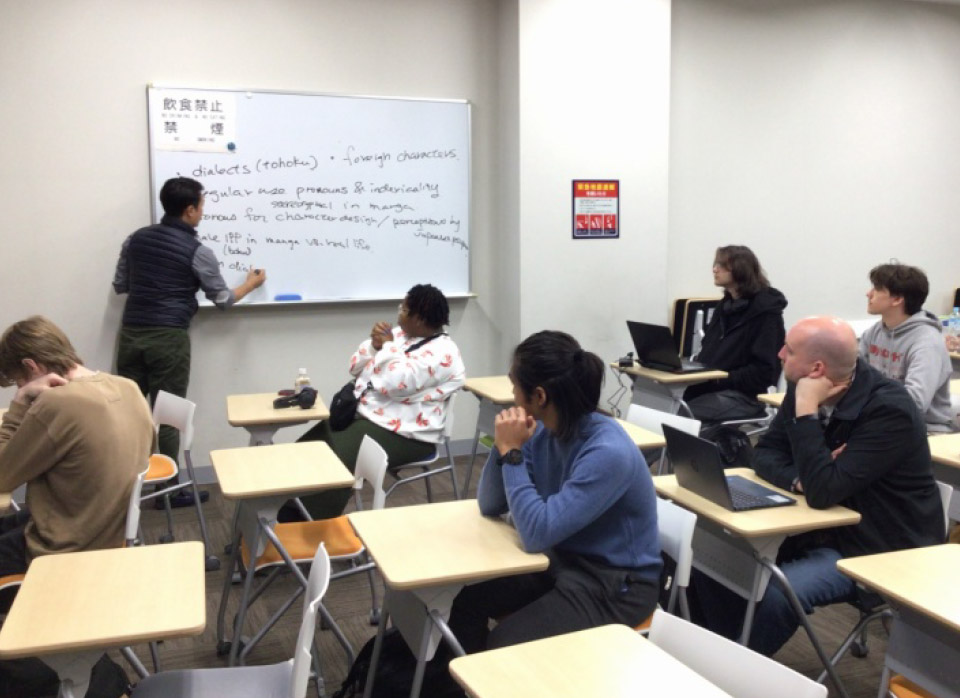
| MONDAY | TUESDAY | WEDNESDAY | THURSDAY | FRIDAY | |
|---|---|---|---|---|---|
| 9:00~11:50 | Japanese Language |
Japanese Language |
Japanese Language |
Japanese Language |
Japanese Language |
| 11:50~13:00 | Lunch | Lunch | Lunch | Lunch | Lunch |
| 13:00~14:30 | Japan Studies* | Japan Studies* | Japan Studies* (Joint Seminar) |
||
| 14:40~16:10 | Japan Studies* | Japan Studies* |
*Students take two Japan Studies courses( 3 hours per week each, 3 credits each) per semester.
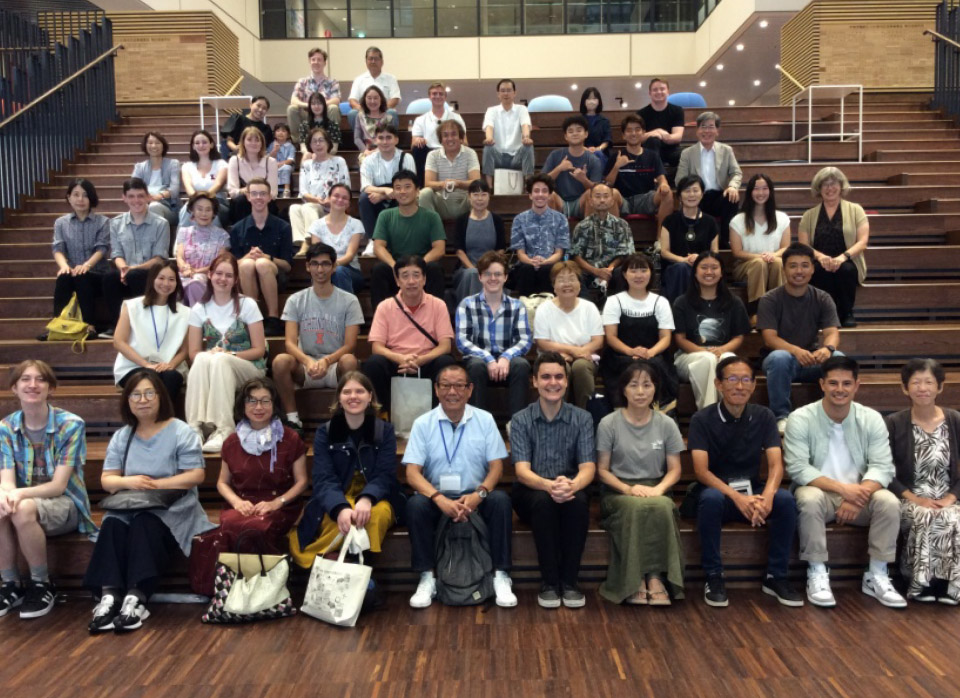
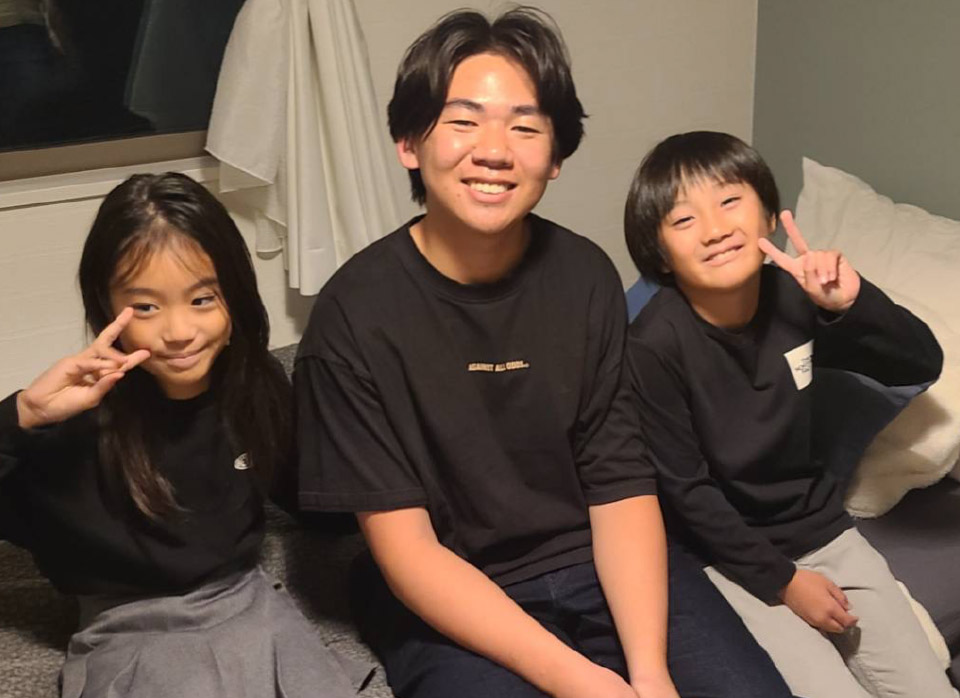
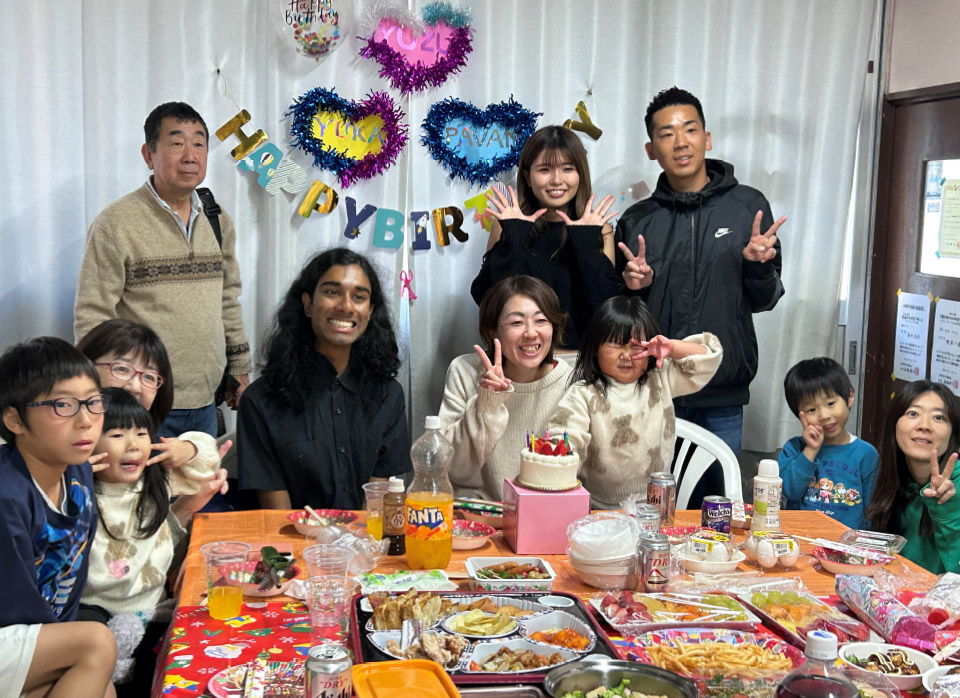
A Japanese homestay is an excellent way for students to significantly improve their competence in Japanese language, while experiencing Japanese culture and traditions firsthand. Studying Japanese in an immersive environment helps to motivate and to rapidly improve Japanese language ability. Just as importantly, living with a host family exposes students to Japanese daily life and customs, ensuring a much deeper understanding of Japanese culture than would otherwise be possible.
The homestay experience consistently receives high marks from former students, who cherish the friendships they were able to make with their host families. This experience has proven to be an invaluable part of the program, adding immense depth and meaning to the overall study abroad adventure. Students are provided a private room furnished with a Japanese futon or Western bedding along with two meals a day (breakfast & dinner) on weekdays and three meals on weekends and national holidays.
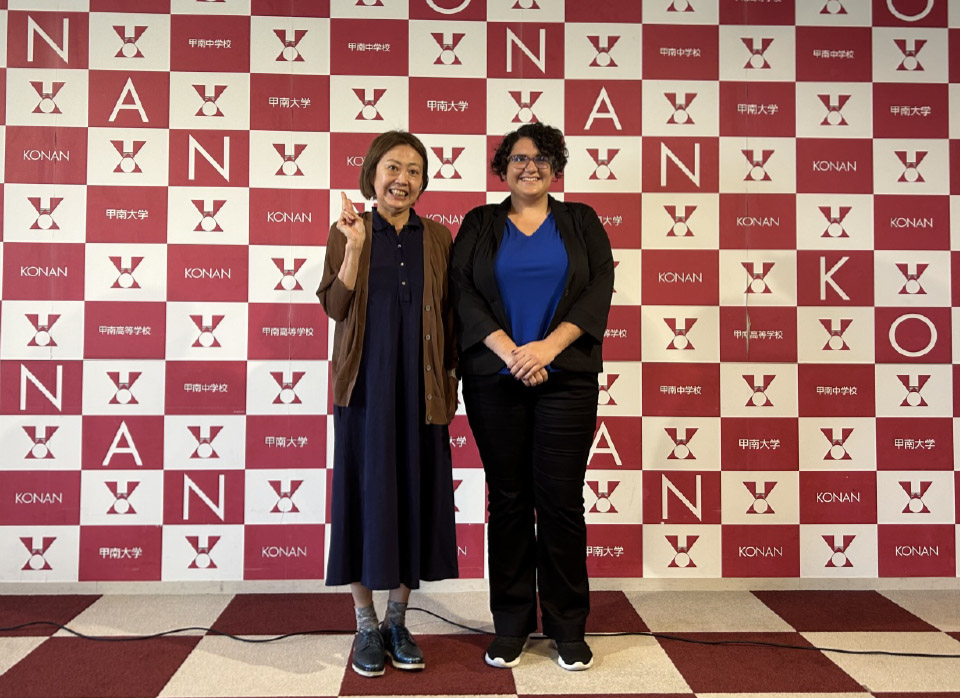
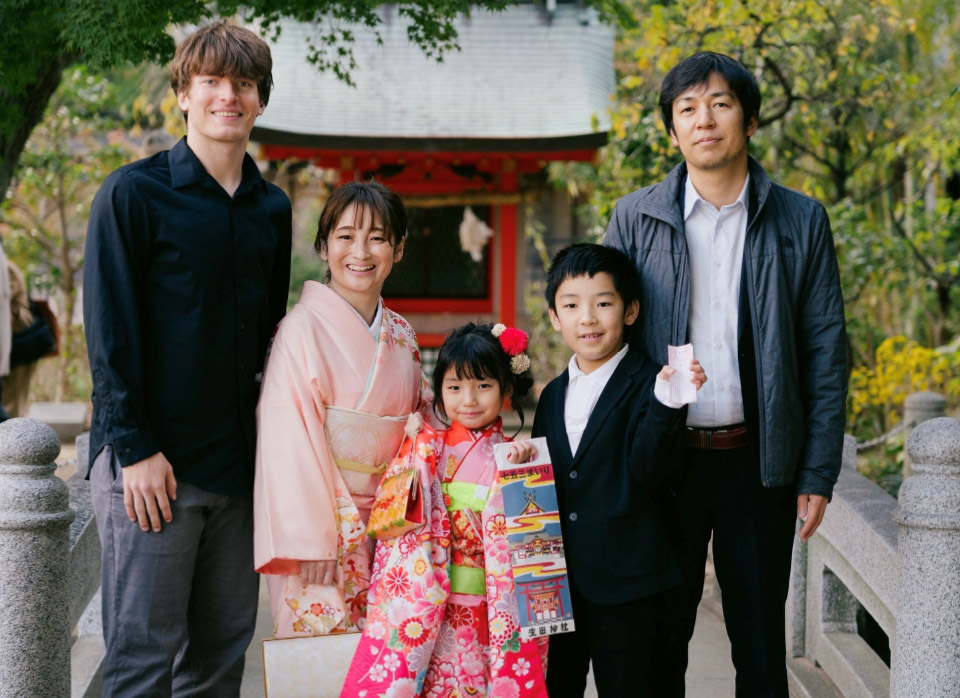
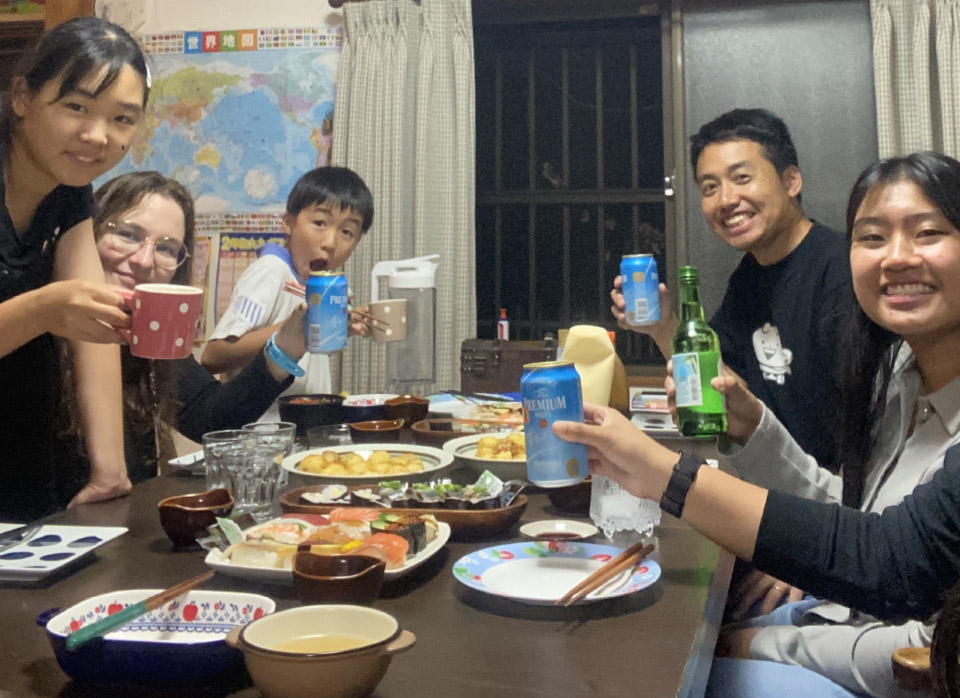
Konan University does not have dormitory facilities on campus. However, off-campus privately owned dormitory accommodations (with or without meals and/or basic cooking facilities) are available. Accommodations may differ in style and because working adults may also live at these dormitories, the opportunities to socialize with other students may be limited. Instead, this option tends to prioritize privacy.
Please note that vegan, vegetarian and allergy free menus are generally not available at these facilities. Those who have dietary restrictions may cook in the kitchenette of their room and/or shared cooking area in the dormitory.
Students accepted to the YiJ program are eligible to apply for external scholarships such as the Hyogo University Mobility in Asia and the Pacific (HUMAP) scholarship and the Japan Student Services Organization (JASSO) scholarship funded by MEXT*. Both HUMAP and JASSO awards students approximately 80,000 yen per month for every month the recipient is enrolled in the YiJ program. Students are also eligible to apply for the Konan scholarship, an internal scholarship that is awarded to students who exemplify a strong commitment of service to the Konan University community. Each scholarship has its own application procedure, requirements, and limit for the number of accepted applicants. If there is any questions about scholarships. Please contact with KIEC (kiec-in@adm.konan-u.ac.jp).
*MEXT:the Ministry of Education, Culture, Sports, Science and Technology.
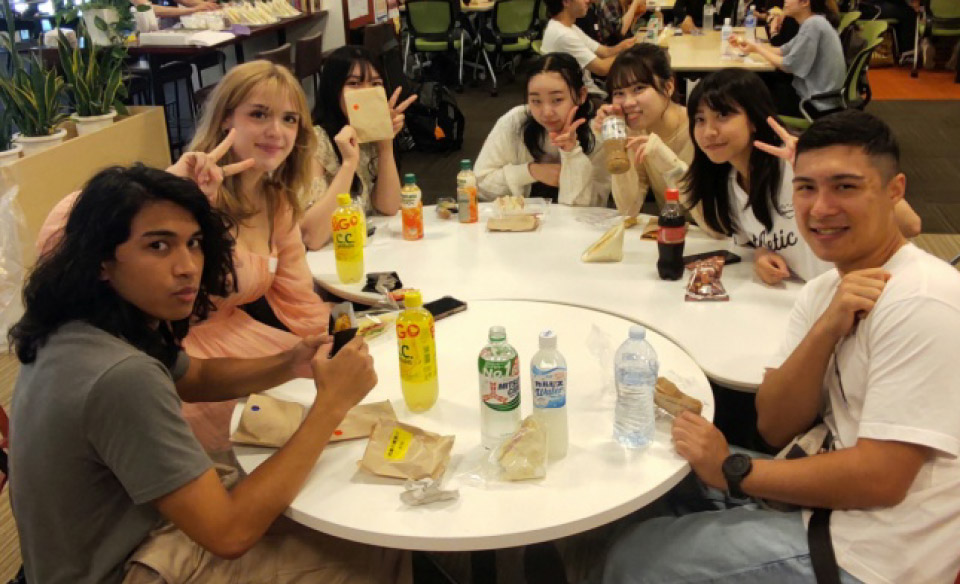
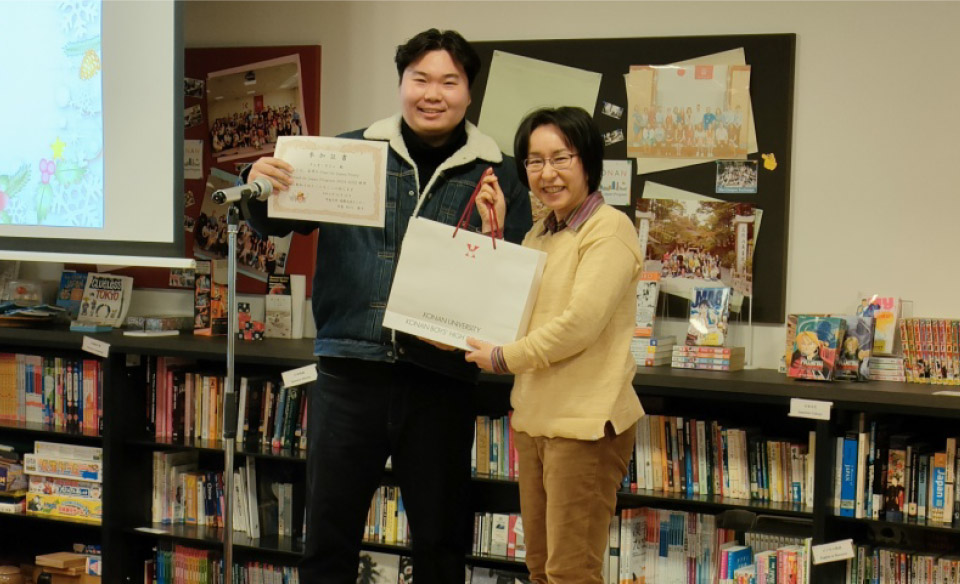
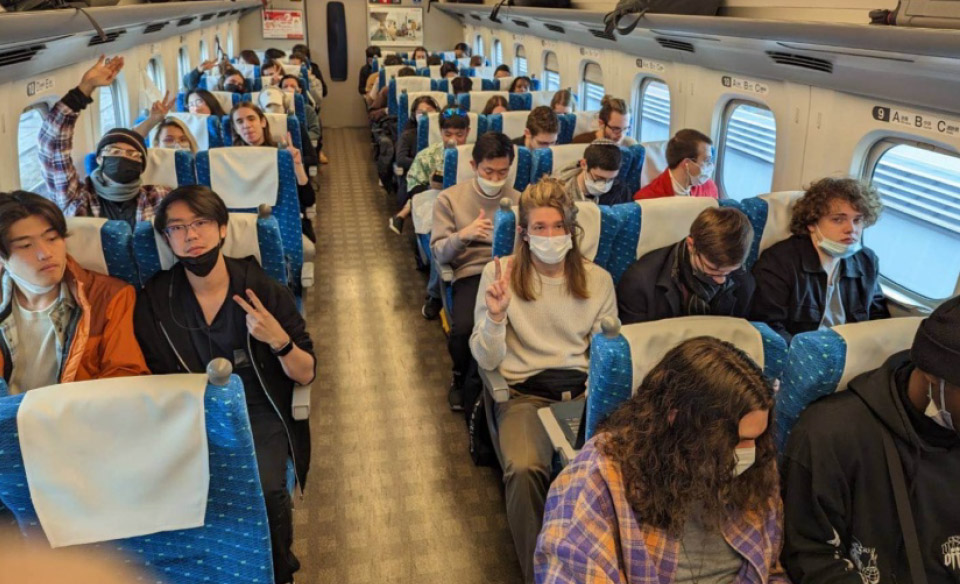
1) Those who are officially nominated by a partner university and who will hold student status at the partner university both when they apply for and when they finish our exchange program.
2) Those who are motivated and eager to study Japanese language intensively, have an interest in Japan, want to continue to deepen their understanding after coming to Japan, and have the ability to adapt to everyday life in Japan.
3) Those who have been determined by a physician (as reported on our program’s Health Report form) to be physically and mentally able to participate successfully in our program.
4) Those who are in good academic standing with a 3.0 or higher cumulative GPA on a 4-point scale, or its equivalent, at the point of application.
*If you have a GPA of 2.5 to 3.0, please consult with Konan International Exchange Center to determine whether there are extenuating circumstances that may make you eligible.
5) For fall semester entry, prior completion of Japanese language courses is not required at the time of application. However, to ensure their success in the program, students should commit to completing a study program of introductory-level Japanese before they arrive in Japan. Various types of study can meet this condition:
˗ Completing an introductory-level Japanese course at the student’s home institution or another university, or
˗ Completing a preparation course arranged or specified by Konan University, or
˗ Completing a program of self-study or work with a tutor, etc.
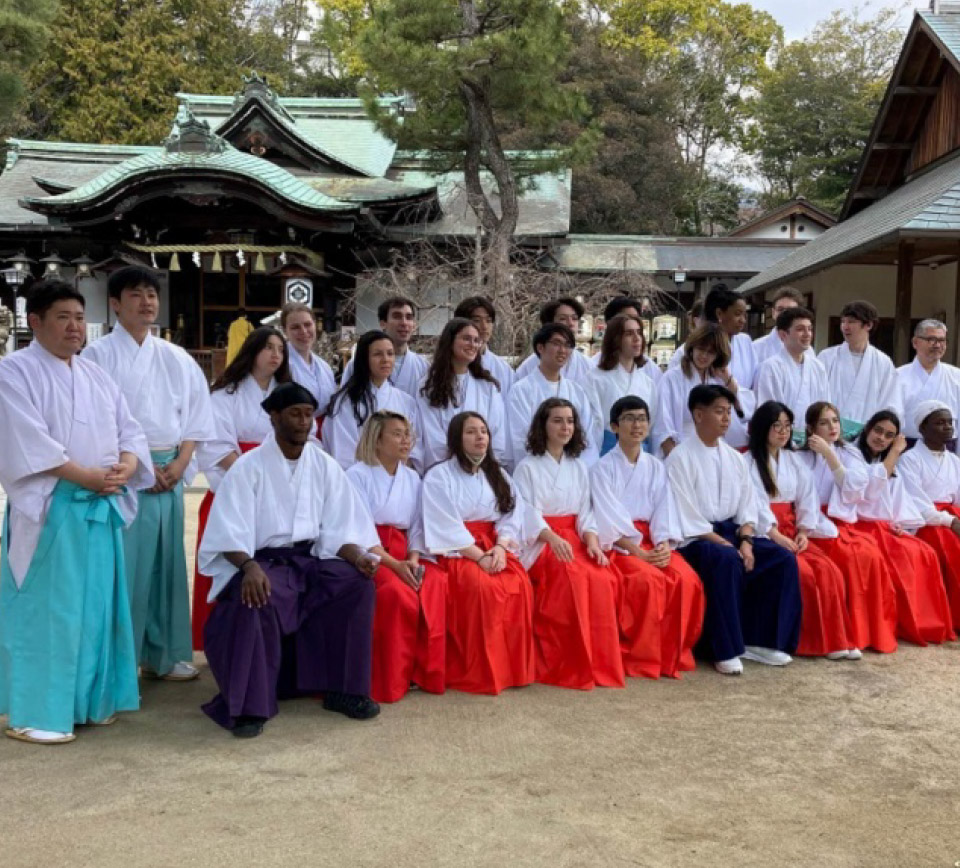
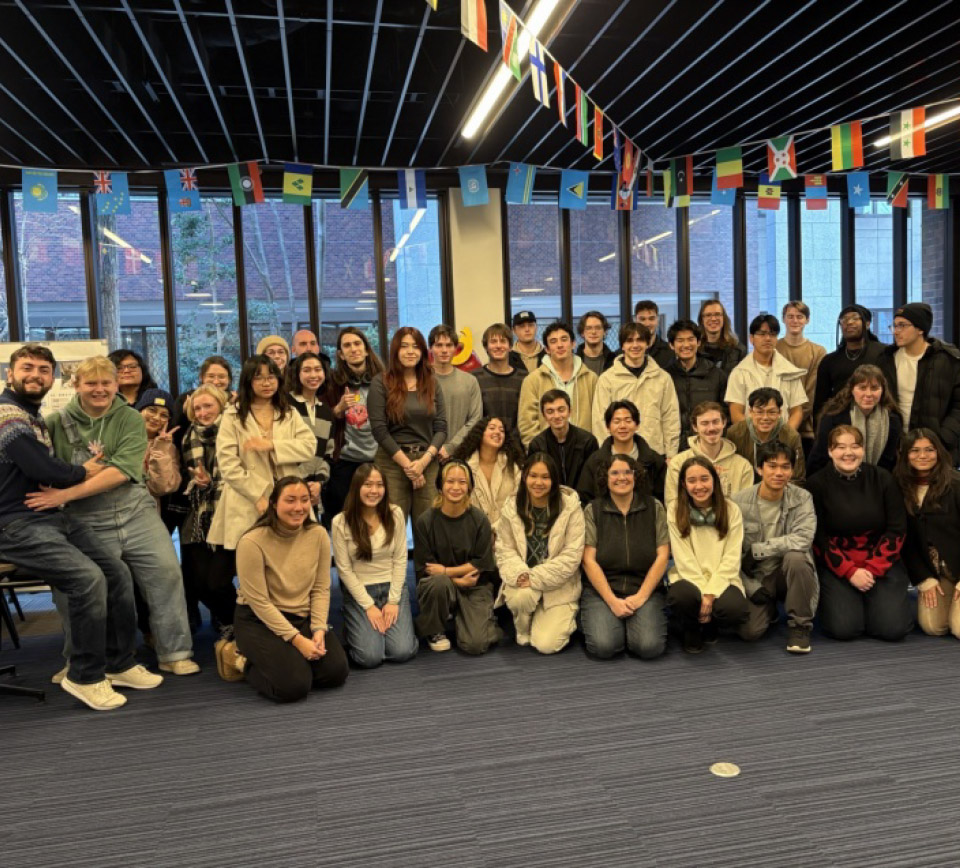
Students with no prior knowledge of Japanese must submit a “Japanese Language Pre-Arrival Study Plan” form as part of the application process, and details of the course/study plan should be included on that form. For students who have already completed any Japanese language courses at the time of application, a grade of C or above in the most advanced class is required.
For spring semester entry, students are required to have completed beginner-level Japanese study and be ready for pre-intermediate-level courses (which, in JLPT terms, means abilities equivalent to the N4 level or above). Additionally, a grade of C or above in the most advanced class is required.
*Please consult with KIEC to determine whether there are extenuating circumstances that may make you eligible.
6)Those who meet one of the following three criteria with regard to English language proficiency:
①You are enrolled at a partner university in the United States of America, Canada (except for Quebec), United Kingdom, or Australia
②You have an official test result demonstrating proficiency equivalent to CEFR B2 or higher, or equivalent score on other tests
③You have a recommendation letter by a faculty member of a partner university certifying that you have an English proficiency level equivalent to CEFR B2 or higher
If you qualify under criteria ② or ③, you are required to fill out and submit our “English Language Proficiency Form.”
If your university is not a partner university but is located in the U.S., you can participate through the UH Consortium. Please contact the University of Hawai‘i at Mānoa Study Abroad Center.
https://www.studyabroad.hawaii.edu/programs/semester-year/kobe-japan/
| Full Year/ Fall Semester | Spring Semester | |
|---|---|---|
| 1 |
Feb – Early March
Complete and submit all application |
August – Early September
Complete and submit all application |
| 2 |
Early July
Receive confirmation letter |
Early November
Receive confirmation letter |
| 3 |
Early August
Receive certificate of eligibility |
Late November
Receive certificate of eligibility |
| 4 |
Early August
Receive host family/dormitory information |
Early December
Receive host family/dormitory information |
| 5 |
Beginning of September
Arrive at Kansai international airport |
Beginning of January
Arrive at Kansai international airport |
Please contact the study abroad center of your university for information about program fees.
If your university is listed on our Partner Universities page, then please contact the study abroad office at on your campus.
https://www.konan-u.ac.jp/kiec/jump/destination_list/
If your university is not listed as one of our Partner Universities, or for more information about who to contact, admissions requirements and application procedures for the YiJ Program, please contact the Konan International Exchange Center at Konan University.
The YiJ Program is an exchange program. University-to-university agreements allow students belonging to our affiliate universities to join the Program. More information is provided here.
If your university is not a partner university but is located in the U.S., you may be able to participate through the UH Consortium. Please contact the University of Hawai‘i at Mānoa Study Abroad Center.
https://www.studyabroad.hawaii.edu/programs/semester-year/kobe-japan/
Students may choose to attend for one semester (half of an academic year/either fall semester or spring semester) or for two semesters (a full academic year).
For fall semester, we offer the following levels: Beginner, Pre-intermediate, Intermediate, and Pre-advanced. We welcome complete beginners in the fall semester. However, we recommend learning some basic Japanese before the program starts, so that you can take full advantage of the experience. For spring semester, we don’t offer the Beginner class. Students are required to have completed at least half of a beginner level of Japanese language study (e.g., textbook “NAKAMA1” or ”げんきⅠ”)
The normal course load for all students consists of one intensive Japanese language course (14 hours per week, 10 credits in total) plus two Japan Studies courses taught in English (3 hours per week each, 3 credits each).
It is up to each institution to decide which credits can be transferred. It is important for you to consult with your study abroad advisor concerning what classes to take and about obtaining credits.
Almost all undergraduate courses are conducted entirely in Japanese. You can enroll or audit in those courses if you meet the Japanese language proficiency requirement as assessed by Japanese language instructors at Konan. Please note that you should not choose courses that overlap with your Japanese classes in the mornings nor with Japan Studies in the afternoons.
You must obtain a student visa in order to participate in the YiJ program. You will need a Certificate of Eligibility to apply for your visa at the Japanese Embassy or consulate in your country.
The Certificate of Eligibility (CoE) in an official document issued by the Japanese Ministry of Justice. Konan International Exchange Center (KIEC) will apply for your CoE on your behalf, and send it to your home institution when issued. For the details, please see the link: General visa: Student | Ministry of Foreign Affairs of Japan
KIEC submit all necessary applications to the Immigration Services Agency of Japan , in principle. We will send a PDF file of your CoE to you by email as soon as we obtain it from the immigration office. You should expect to receive it by early August for the fall semester and by late November for the spring semester.
All international students staying in Japan for more than 3 months are required to enroll in Japan’s National Health Insurance plan. This insurance covers 70% of medical costs at clinics and hospitals. The plan costs approximately JPY 18,000 per year.
Students must acquire travel insurance which covers incidents that may occur on your travels before/after the program.